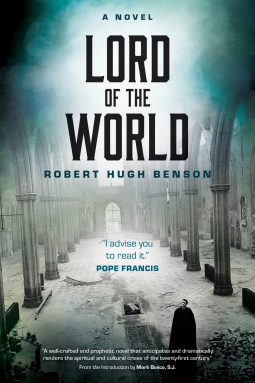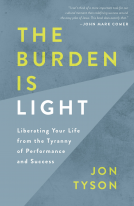
Lord of the World
A Novel
by Robert Hugh Benson
This title was previously available on NetGalley and is now archived.
Send NetGalley books directly to your Kindle or Kindle app
1
To read on a Kindle or Kindle app, please add kindle@netgalley.com as an approved email address to receive files in your Amazon account. Click here for step-by-step instructions.
2
Also find your Kindle email address within your Amazon account, and enter it here.
Pub Date Feb 26 2016 | Archive Date Jun 01 2016
Ave Maria Press | Christian Classics
Description
Popular young adult books such as The Hunger Games and Divergent, as well as literary classics such as Walker Percy’s Love in the Ruins and Cormac McCarthy’s The Road, have created a growing interest in dystopian novels. In one of the first such novels of the twentieth century, Robert Hugh Benson imagines a world where belief in God has been replaced by secular humanism. Lord of the World describes a world where Catholics are falling away and priests and bishops are defecting. Only a small remnant of the faithful remains. Julian Falsenburg, a mysterious and compelling figure arises, promising peace in exchange for blind obedience. Those who resist are subjected to torture and execution. Soon the masses are in Falsenburg’s thrall and he becomes leader of the world. Into this melee steps the novel’s protagonist, Fr. Percy Franklin. Dauntless and clear-sighted, Franklin is a bastion of stability as the Catholic Church in England disintegrates around him. Benson’s harrowing plot soon brings these two charismatic men into a final apocalyptic conflict.
With an imagination to rival H. G. Wells and theological insight akin to G. K. Chesterton, Benson’s astute novel has captured the attention of many today, including Popes Benedict and Francis. This new edition makes it easily available and features an insightful introduction by Rev. Mark Bosco, S.J., a brief biography of Benson by Martyn Sampson, and a theological reflection by Rev. Michael Murphy, S.J.
Selling Points
Lord of the World has been praised by Pope Francis (November 2013) as depicting “the spirit of the world which leads to apostasy” and mentioned by Pope Benedict XVI in critiquing President George H.W. Bush’s “New World Order.”
There is a growing interest in dystopian novels because of popular young-adult books such as The Hunger Games, Divergent, Walker Percy’s Love in the Ruins and Cormac McCarthy’s The Road.
Featured in Fr. John McCloskey’s “Catholic Lifetime Reading Plan.”
A Note From the Publisher
Benson was sent to Cambridge to write and serve as a priest chaplain to the Catholic community. Later, he was allowed to live on his own to devote himself to writing. A prolific author, he traveled extensively, writing and lecturing. Benson wrote many apologetic works, including The Religion of the Plain Man, Paradoxes of Catholicism, and Confessions of a Convert. He was also a bestselling novelist, writing The Holy Blissful Martyr Saint Thomas of Canterbury, Come Rack! Come Rope!, and The Necromancers. Lord of the World is his best-known work.
Mark Bosco, S.J., is an associate professor at Loyola University Chicago, holding a joint position in the departments of English and theology, where he also directs the Joan and Bill Hank Center for the Catholic Intellectual Heritage.
Michael P. Murphy is an instructor in theology and director of the Catholic Studies Program at Loyola University Chicago.
Martyn Sampson teaches English literature as an associate lecturer at the University of the West of England in Bristol.
Advance Praise
Most Rev. James D. Conley
Bishop of Lincoln
“Benson’s dystopic novel is more sinister than the simple hedonism of Huxley’s dystopia and more subtle than the sheer brutality of Orwell’s. I welcome Ave Maria Press’s new edition of this classic and prophetic work.”
Joseph Pearce
Editor of the St. Austin Review
“While addressing present trends and times, both Pope Francis and his predecessor have made reference to The Lord of the World. For curious or prudential minds, that is reason enough to seek out the story, but by including both a fresh, context-clarifying introduction to Robert Hugh Benson and his dystopian tale and an invaluable meditation on the theology that drives it, Ave Maria Press gives us a relevant and readable edition of a harrowing 1907 novel that, in places, seems all too familiar and timely.”
Elizabeth Scalia
Author of Strange Gods
Available Editions
| EDITION | Other Format |
| ISBN | 9780870612985 |
| PRICE | $14.95 (USD) |
Average rating from 6 members
Featured Reviews
 Amanda M, Reviewer
Amanda M, Reviewer
This book is pretty amazing. It was originally written in 1907 but is so appropriate today. I first wanted to read this book when I heard that Pope Francis recommended it. I am so glad I read this one.
This book takes place in a dystopian present (it was the future in 1907 though!). The world looks different than it does now simply because Robert Hugh Benson had no idea where technology would go. The telegraph is still a pretty important part of information transfer in this book.
Percy Franklin is a Catholic priest in a world where humanism is the guiding belief. Those who are religious in any way are persecuted for their faith. Euthanasia is readily available and commonplace in this world. Everything is secularized and man is the epitome of evolution.
Father Franklin is working as hard as he can to save souls and keep the world from devouring his religion. The battle he is fighting seems to be a losing battle when Julie Felsenburgh, a mysterious American, manages to broker world peace.
Felsenburgh is anti-anything-resembling-true-faith. Instead, Felsenburgh is a leader of secular humanism. After world peace is established, he is hailed as the savior of the world and the expression of the divine human.
All of this is directly opposed to the Catholic Church, the only Christian denomination left in existence. The humanistic society is reframing all religious thought around Felsenburgh while the Church can do little to combat it.
Father Percy Franklin is thrown into this mix with his brilliant mind and his uncanny resemblance to Julian Felsenburgh. Something is going to happen and these two men are likely to head the opposing sides.
This novel is so apropos for today’s world where being a Catholic is such a hard thing. It is amazing to think that this book was written in 1907 when it is so appropriate to today’s world.
I loved this book much more than I thought I would and even though the ending was horribly abrupt, I have no idea how else it could have ended. This is a great book and I am so thankful that Pope Francis recommended it which then made me aware of it.
 Rony C, Reviewer
Rony C, Reviewer
An extraordinary and somewhat prophetic insight into the future behaviour of mankind.
Oliver Brand is the new appointed member for Croydon. He is married to Mabel. Oliver is of the new generation who believes in the New Order. His mother who lives with them, was brought up as a Christian, something that is now forbidden and looked down upon as nothing but superstition. He feels that the future is more exciting as the Master, Felsenburgh, (known as the Son of Heaven) comes to take power of the entire world. All religions have fallen (or been banned) and now mankind believes that they are themselves the creators of all. Euthanasia, is readily available and is used for ridding the world of both young and old.
Father Percy Franklin has managed to keep some form of Catholicism going. He writes regular reports to the Pope on the happenings under the new regime and is eventually summoned to Rome to work alongside the Pope. He and Felsenburgh could almost be twins, but they couldn’t be more different.
I found that I needed to read this book with no distractions simply because there are so many facts and philosophies to acknowledge and puzzle over. I found it particularly hard to come to terms with what the book predicts, because in so many instances, the wheels of life as we live it now, are turning into what was predicted by Robert Hugh Benson in 1907 (when this book was first published). I know that this book is going to continue to profoundly affect the way my thoughts continue to churn over the problems of the world as we know it and the changes that seem so inevitable in how mankind evolves.
I must thank the publishers, Ave Maria Press, for re-publishing this extraordinary work which must rank among the top of dystopian fiction written. This book proceeded Aldous Huxley’s Brave New World (1932) and George Orwell’s 1984 (1949). I would love to use this review to encourage other readers to read these works and possibly add Children of Men by PD James (2010) to the list. My reason for wishing that more people would take the time to read these books, which are not easy reading, is simply so that we can realise and can continue fighting for fair and equal justice for all and peace to practice the religion of our choice.
Treebeard
Breakaway Reviewers received a copy of this book to review.
 Lisa S, Reviewer
Lisa S, Reviewer
‘'Ministers of euthanasia’ arrive on the scene quickly after a volor (high-speed plane) crash and there are Euthanasia centers for the disabled and anguished. Catholicism is regarded as the enemy and many of the faithful have gone to Rome, the last holdout. The others keep a low profile. England eagerly awaits the coming of Julian Felsenburgh, the new President of Europe who hAs united East and West. There are no wars in this Communist secular ‘utopia’.welcome to the dystopia world imagined by Robert Hugh Benson.
Oliver Brand is an official in the secular, ‘humanitarian’ government and determined to get rid of ‘ superstition and ignorance’,’ and his beautiful wife Mabel is heavily influenced by his views. Although Oliver is supposed to be enlightened, he really has a condescending attitude to Mabel who, he thinks, is inclined to be emotional because she is a woman. Imagine their horror when they find out that Mabel’s mother wants to see a priest and return to her religion! This priest, Fr Percy Franklin, is a calm and strong leader, who doesn’t fear Felsenburgh.
In this new world, the government decides that people actually need ceremonies to replace the old ones and makes attendance compulsory. Now the Abbey is used for the veneration of Maternity, Life, Sustenance and Paternity. These ceremonies remind one of some of the New Agey celebrations and, indeed, the new types of church services which are popular today.
‘
Eventually, the battle between these two opposing views, will lead to a huge disaster…
This creepy, remarkably prescient novel by a Catholic convert with its similarities to today’s West with its desire to relegate Christianity
to the sidelines and its tendency to regard man as the enemy, but also worship mankind, had a big influence on the new Pope who has criticized ‘ideological colonisation’. This has created a big interest in the novel.
It is certainly a memorable book but rather wordy. I especially liked Benson’s explanation of Catholic belief.
I received this free ebook from Net Galley in return for an honest review.








